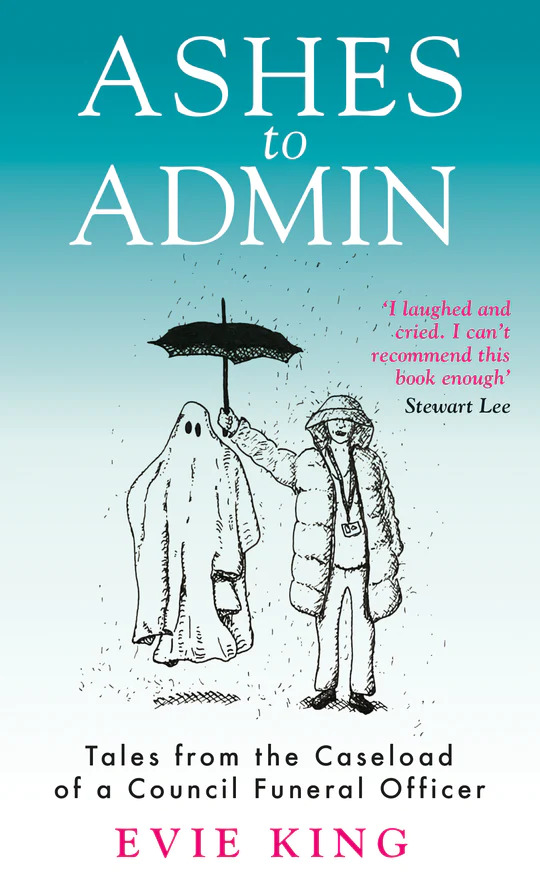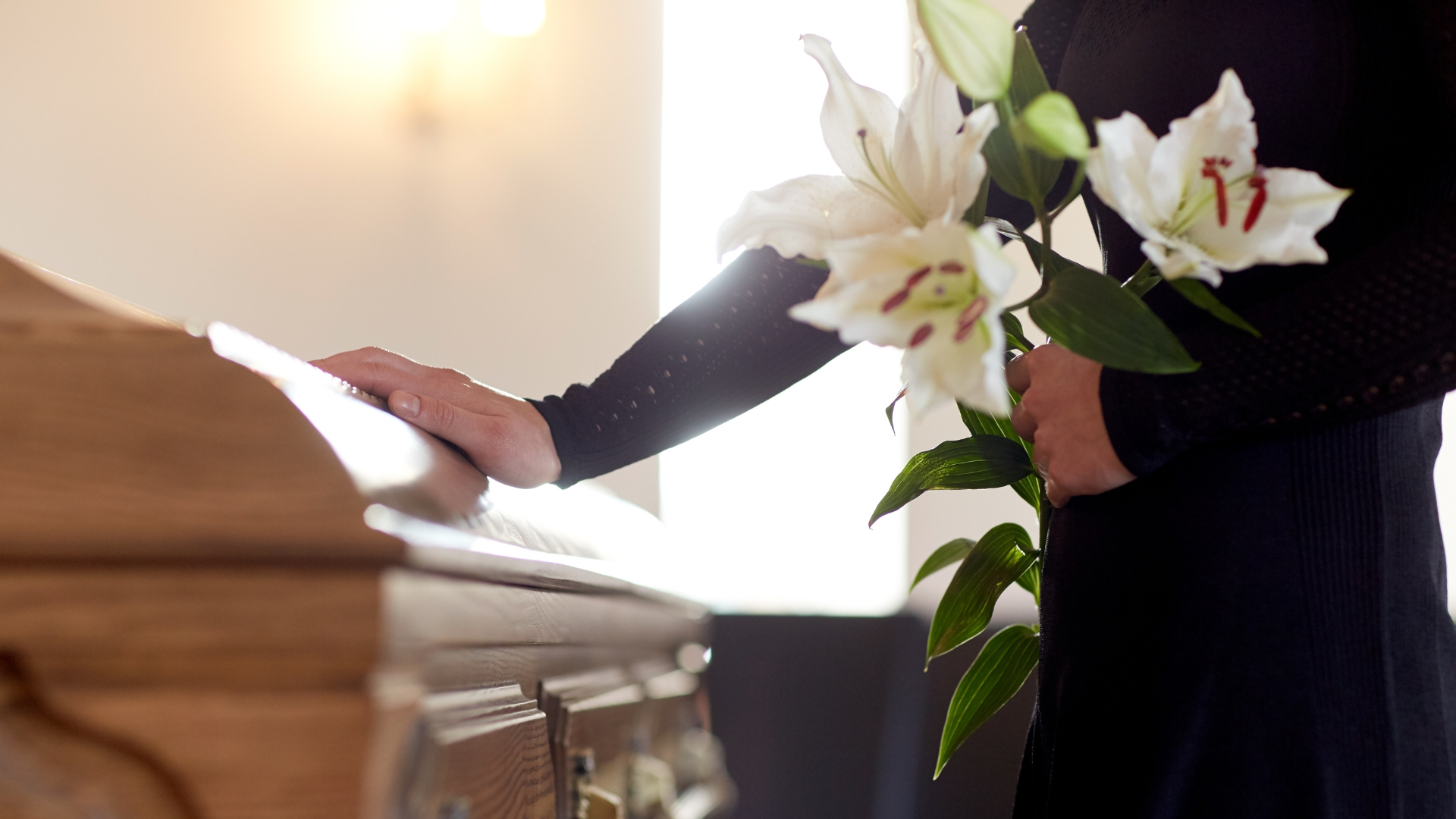To do this last bit I have to go to the online registration system where I am given the choice of either ‘make a birth appointment’ or ‘make a death appointment’. Truly the circle of life. Making a death appointment grimly amused me at first, sounding as it did, like I was arranging a meeting with the actual grim reaper to complete the admin side of dying in his office. I stood up at my desk as I put my coat on to leave for my first ever registrar meeting and dramatically announced ‘I must go, I have an appointment,’ pause for effect, ‘with death.’ Putting the fun in funerals there. Of course, it’s nothing as exciting as that and I simply collect the piece of paper which marks their official end, the death certificate. There are so many death certificates out there with my name on and giving my relationship to the deceased as ‘causing the body to be burned/buried’ that future historians searching local records will probably be wondering about me.
In between all of these appointments I will visit the deceased’s residence and, in the case of those without family, carry out a house search with a view to finding any next of kin. They’re usually hiding in address books, phone logs, a scrawled email address inside last year’s balled-up Christmas card. They can also be extra hidden under years of hoarding or detritus. And sometimes just not there at all. In the absence of any immediate clues – hardly anyone has address books anymore and phones are so often pin-locked – I’ll try knocking up the neighbours. And then if I find nothing, or I find something but none of the numbers lead anywhere and the emails bounce back, well, this is where things should end. There’s nobody. Book the funeral, attend solo, and get back to work.
But whether it’s through empathy, stockpiling karma, general nosiness, or a combo of all three, I can’t let it end there. They must have been loved by someone or at the very least known to someone. And even if they somehow weren’t, I can’t just let them disappear. They deserve their decent farewell, their final summing up. So I also look out for clues as to exactly who they were, to help the celebrant tailor their funeral, and also because I genuinely want to know.
On top of looking for the usual wallets, bills, wills, bank statements with which to close down their life, I’m also looking for membership cards, letters, photos, diaries, evidence of hobbies, cd collections, signs of a religion and therefore preference for burial or burning. Any information to help me find, if not family, then friends, acquaintances, talents, ambitions, dreams, loves, lost loves: their life.
After I have taken a whistle-stop journey through their entire existence, I return to my public health duties and take their last ever meter readings, dispose of all perishable food, turn off the fridge and put their bin out one last time. Basically a cross between a private detective and a cleaning lady.
Then I take my evidence bag back to the office where I empty the person’s life out onto my desk, flanked on all sides by similar desks taken up with the contrasting workaday admin that I would otherwise be doing if someone hadn’t gone and died. Taxi plates being produced, premises licences being varied, someone taking a call about barking dogs, smelly drains, bonfire smoke, and of course the background buzz of people chatting away, most likely about Housing using our milk and tea bags again.
I put the papers in order – utility bills in one pile, bank statements in another, then credit cards, insurances, investments, pensions. I put the personal stuff to one side, as I’m going to start with the administrative things as a warm-up to the hard, human bit. I tell the DWP, I freeze their bank accounts, cancel cards, I listen to a whole lot of terrible hold music. In the case of credit card companies in particular I say ‘something else’ over and over again to a robot voice until it finally stops offering me unsuitable options and puts me through to a human. You can pay, you can transfer a balance, you can do anything, except die. I mean, why would you want to go and do that? If you’re reading this, please do better, guys. Add a deceased account holder option early on.
I don’t need to, but I go through their wallet and inform libraries, clubs, their store loyalty cards, so that the mailings cease and don’t distress anyone, or waste paper if there’s nobody around to distress. Fun fact, some stores let you bequeath points, I bestowed one chap’s Clubcard balance to his brother-in-law. Then it’s on to the strange task of calling random numbers in mobile phones and address books to inform whoever picks up of the death. It’s daunting, because it could be a bemused plumber who did one job for them in 2014, or it could be the love of their life. You have to get very comfortable very quickly with being on the phone to people who are in shock and in tears. And often due to the nature of my cases, wracked with guilt. From the estranged family member who let things slide and is trying to justify themselves to me entirely unprompted, to the best friend who argued with them when last they spoke and kept asking me if I thought that’s why they had committed suicide.
As I said earlier, if no family is found, it’s over. But as I also said earlier, it’s not over for me. If the phone calls don’t pay off I will start trawling Facebook, Twitter, posting on local group pages and forums, using the personal clues I picked up in the house like a photo outside a pub, shop, cricket club, to track someone who knew them.
Sometimes it just comes down to desperate Googling of their name. It’s amazing what you can turn up. One guy had an online tea shop and a section called ‘The Old Tea Boy’ which gave a run down of his entire life from his childhood in Ceylon, to his time as one of the youngest Brooke Bond trainees, driving around in the old fashioned red van, to his international tea-tasting career, covering every continent; all in his own chatty charming voice. A surreal experience, communing with the dead this way, but a warming one. By the way, I do this latter round of research on my lunch hour and then after-hours on my own time, as I am only paid to do the basic due diligence, and those taxi plates aren’t going to make themselves; so at ease, taxpayer.
By the time the funeral arrives, my brief but intense immersion in the person’s world causes me to feel as though I’ve met them and am attending myself as a friend. Indeed, when I was describing a couple of cases to someone recently they stopped me mid-sentence to say, ‘it’s like you know them and can see them in front of you’. True, I may never have met them whilst living, but their life and personality crystallized before my eyes during the carrying out of my basic duties, and my self-appointed ones too. Dead strangers are just friends you haven’t met yet, that’s what I say. I don’t really.


